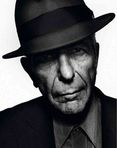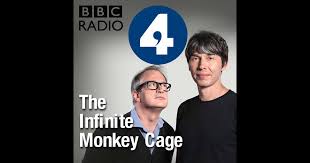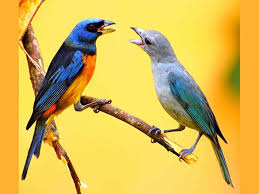
| I thought of this when I heard a science type on ‘The Infinite Monkey Cage’, a science radio show, saying that birds do not really make music like humans do - they sing only to get mates. He conceded that they got pleasure from singing as serotonin was released in their brains but he insisted that, unlike humans, they just did it because they were programmed to do it. |
We get pleasure from making music and do this for fun but we do not know why we do it anymore than the birds know why they sing. Do we really have agency? If so where does this come from?
Matosov argued that for a teacher to force children to learn Maths when they do not want to learn Maths is wrong. This is not respecting their agency. People do enjoy Maths, of course, but it does not seem as natural for most children as enjoying making music. It more often seems like a culturally mediated pleasure that people have to be taught first and might learn to enjoy later. In response to this challenge I tried to argue that the issue is not just about the agency of the children but also about the agency of the Maths. Maths is a long-term dialogue bigger than any individual that wants to survive and that can only survive by recruiting individuals.
Why we should teach Maths is also one of the issues addressed in a very practical new book I have co-written with Neil Phillipson. The answer we gave in the book was about the role of education as inducting children into the long term dialogues of culture. The idea is that these long term global dialogues are more powerful in many ways than the short-term and local dialogues that tend to influence whatever it is that children might think that they want to learn right now like how to be a better football player or a pop-star. You cannot really force children to learn what they do not want to learn but you can offer an invitation and help them to engage.
Our point was also that participating in these powerful long term dialogues of culture and, more generally, in what Oakeshott has called ‘the conversation of mankind’, is a way for children to become fully human. While some aspects of culture can seem alien to children, humans do not exist apart from culture and it is only by engaging with a culture, internalising it and living it, that we become fully ourselves.
Gilbert Simondon argues that we should not look at individuals as if they were fixed and finished final objects but always in terms of the process of individuation that formed them and that continues to form them. His focus on individuation reveals a continuity between nature and culture. Natural processes of individuation, like the way that individual snow-flake crystals precipitate out of the water vapour in a cloud, become doubled in on themselves in biological life: “The living organism conserves within itself a permanent activity of individuation”, he writes in L’individuation psychique et collective. The bird looking for a mate, or just enjoying herself by singing, will produce hundreds of songs each slightly different. In human cultures individuation doubles again. Our thoughts are like the bird song, called out as a response to the world and themselves actions in the world, formations of new patterns of neurons in the brain, or patterns of sounds in the air or ink on the page. But there is a difference. We do not just make music – we ask why. We do not just think, we also reflect on our thinking. Reflective thought is not individual but cultural. By using shared technology such as ink and paper, we are able to exteriorise ourselves and look back as if from other points of view. Humans depend on technology, tools, words, footballs and music recordings, that helps build something collective beyond the biological individual. We could call this culture. Simondon refers to the trans-individual. Extending Simondon’s quote about the shift from the physical to biological you could characterise the shift from the biological to the cultural in much the same way but up one level: human culture conserves within itself a permanent activity of trans-individuation.
Children’s desires are not fixed in time but evolve as part of a larger never finished journey of individuation and trans-individuation. Disciplines like Maths might not be what a child want to learn right now but they are part of what a culture wants to learn and cultures learn by co-evolving with biological individuals - sometimes possessing them and sometimes possessed by them. We are never just an individual, never just a culture – but we dance between these two extremes.
Socrates seems to be describing a similar understanding of his role as an educator inducting students into the long-term dialogue of culture when he is reported by Plato in the Phaedrus as saying:
The dialectician chooses a proper soul and plants and sows within it discourse accompanied by knowledge - discourse capable of helping itself as well as the man who planted it, which is not barren but produces a seed from which more discourse grows in the character of others. Such discourse makes the seed forever immortal and renders the man who has it as happy as any human being can be.
Biological individuals have a certain agency, they want to sing, they want to get mates, but, as even Socrates knew, discourses - or trans-individual dialogues - also have agency and they want to survive too and the only way that they can survive and grow is through implanting themselves in biological individuals. Education is motivated by the agency of long-term dialogues. For birds singing for a mate brings joy. For teachers and learners participating in the long-term dialogues of culture brings joy and also the immortality of a trans-individual life.



 RSS Feed
RSS Feed